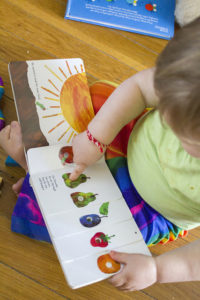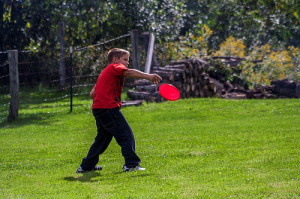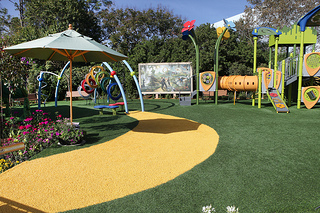 Being an au pair is an important role in a child’s life. When you are caring for young children up to 45 hours per week, there are lots of opportunities to help them learn language. Many host parents are eager for their children to be exposed to more than just English. If this is true of your host parents, you can try the suggestions below, in both English and your native language.
Being an au pair is an important role in a child’s life. When you are caring for young children up to 45 hours per week, there are lots of opportunities to help them learn language. Many host parents are eager for their children to be exposed to more than just English. If this is true of your host parents, you can try the suggestions below, in both English and your native language.
Below are a few tips to start with, for more ideas, check out Ready at Five.
- Read – Read to them daily, point out pictures and ask questions. Even if they can’t answer the questions, this is still modeling conversation.
- Talk – Point out objects around them, names of their body parts, explain what you are doing and places you are going. Long before babies can speak, they benefit greatly from being spoken to.
- Sing – You can sing childhood classics or make up your own silly songs. If you are looking for song ideas, HERE is a great website with lists of songs, lyrics and links to youtube videos* of the songs. Children’s music is also available at the public library and even on iTunes.
- Words – As children move from toddlers to preschoolers begin to point out written language.
- Writing – Toddlers and preschoolers can begin to learn pre-writing skills by drawing with crayons or doing finger paints.
*The American Academy of Pediatrics recommends no screen time for babies under 18 months of age. For children 18 months to 5 years they recommend no more than 1 hour of high quality content. You can play the songs on youtube for the audio and not necessarily show the screen to the child.
Photo: Quinn Dombrowski (Flickr)

 Just because a child is old enough to occupy themselves, doesn’t mean that they should be expected to do so the majority of the time. Host families have a certain expectation of activity and involvement for their children. Get the kids engaged and active. You can be more fun than the TV or video game.
Just because a child is old enough to occupy themselves, doesn’t mean that they should be expected to do so the majority of the time. Host families have a certain expectation of activity and involvement for their children. Get the kids engaged and active. You can be more fun than the TV or video game. Whether you are at the park, in the backyard or in the playroom, stay with the children at all times! If you are on duty the safety and well being of the children is your job. Children also find it more enjoyable if you are playing with them rather than sitting on the sidelines watching.
Whether you are at the park, in the backyard or in the playroom, stay with the children at all times! If you are on duty the safety and well being of the children is your job. Children also find it more enjoyable if you are playing with them rather than sitting on the sidelines watching.